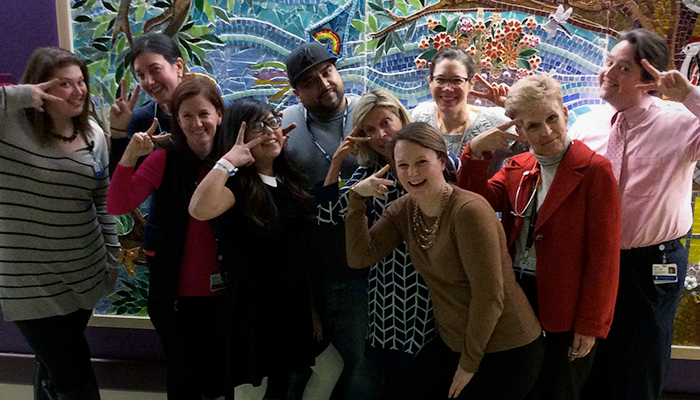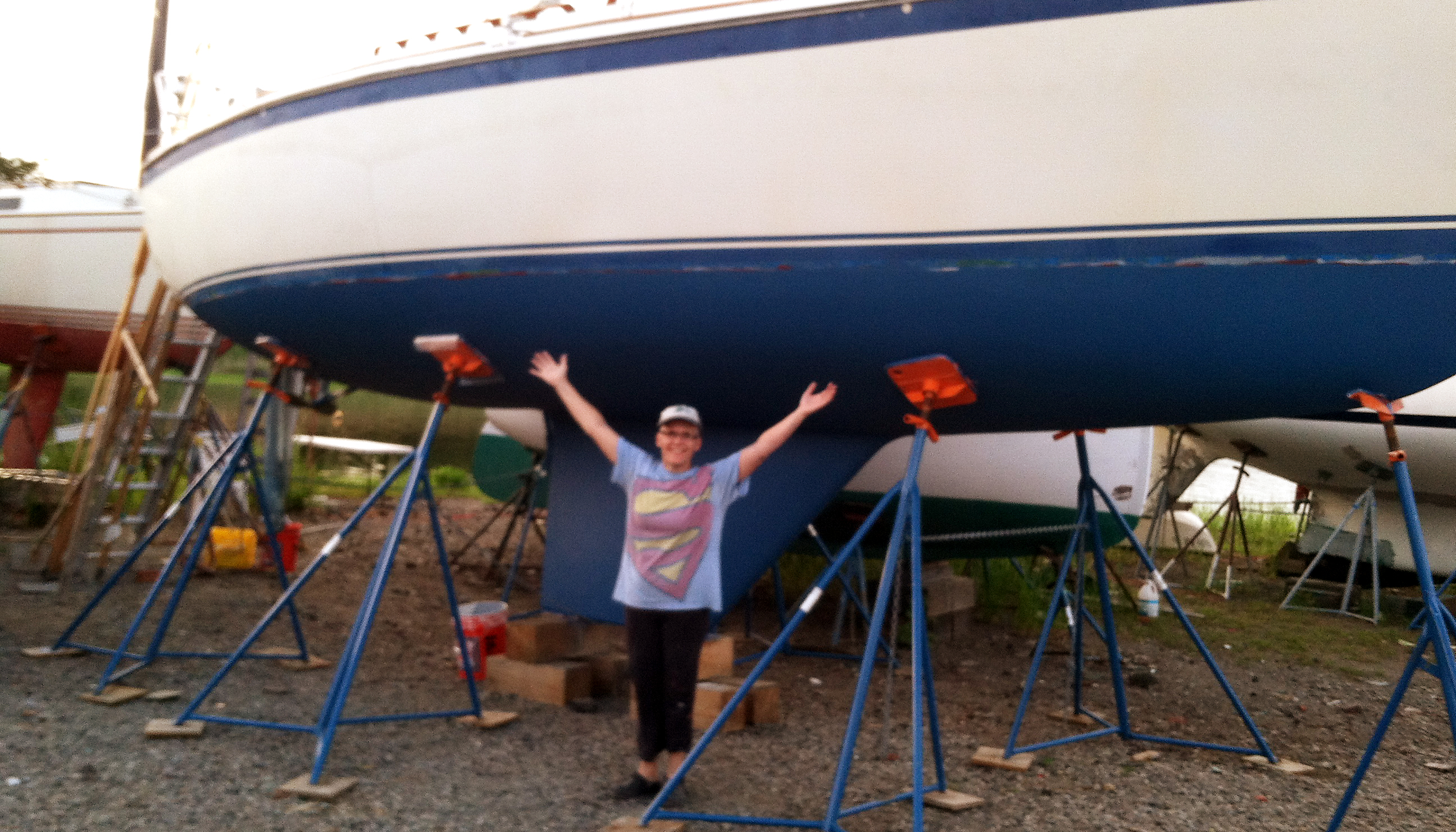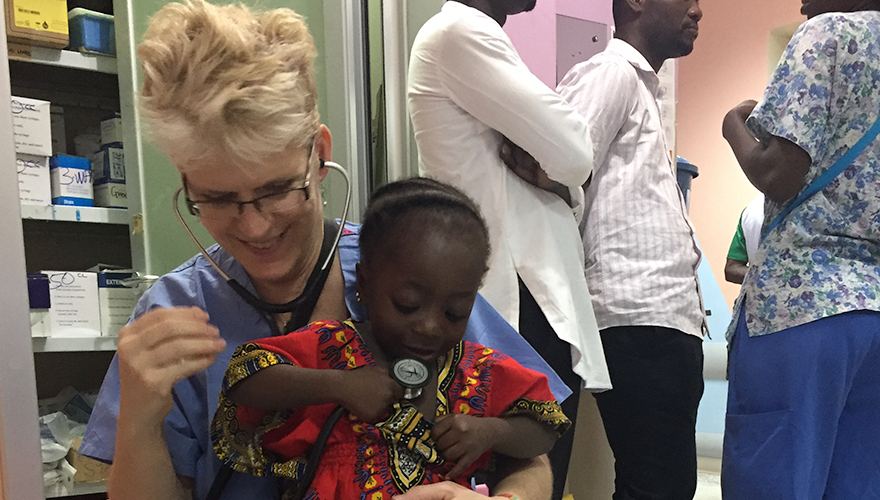Meet Leslie Smoot, a cardiologist for the Heart Transplant Program.
Why did you choose to become a pediatric cardiologist?
I chose to become a pediatric cardiologist, in part, because I am a three-dimensional thinker. I enjoy the plumbing and physiology of cardiology, and biology is endlessly fascinating. I also had a great role model — George Emmanouilides at Harbor-UCLA — who was an amazing cardiologist and passionate human being.
How did you end up at Boston Children’s Hospital?
I’m originally from Minnesota but had been a physician assistant in New Hampshire before I went to medical school. I came here as a pediatric cardiology fellow. I had a grant to study cardiac developmental biology and Boston Children’s was one of two pediatric hospitals in the country where that research was possible — and it was known to have an excellent clinical cardiology program. I was pretty excited about it as a place to live and train.
It was not only a great clinical institution, but also a place I could do research. I was pretty excited about it as a place to live and train.

Dr. Smoot (2nd from right) with the Heart Transplant team and recipient Vivian.
What do you like about practicing at Boston Children’s?
I love the challenge of it, the complexity and the depth of expertise, which is so unique. It’s pretty hard to find a more dynamic environment. It’s like being a kid in candy store. You’ve got to be careful some days — sometimes it can be overwhelming.
How did you become involved with transplant?
It was somewhat serendipitous. I was funded to do research and training and had a brief lapse in my research funding, and they needed help on the transplant service.
Dr. Lock paged me to his office and asked, “How would you like to do transplant?” I had never thought about it before, but I like taking care of patients who have complex needs. It’s good medicine. It’s good clinical practice. And it’s intellectually challenging. That’s how I got started, while still continuing to do basic research in cardiac genetics focused on Williams Syndrome.
What do you enjoy most about your job?
What I like most is developing relationships with patients and their families. Although these relationships are not always celebratory, they are the most important and biggest motivation. They are what sustain me. I could never jump out of bed to do any of this work unless it was impacting a human being or their family in some way.
What are you most proud of as it relates to your work?
I am the most proud of being honest, speaking up and being an advocate for my patients. That gives me the most pride. Having integrity around practicing medicine — for better or worse.
I like to think I have the capacity to impact people in a positive way. No matter how bad it is, if I can make it a little better, then I’ve done something useful. When we are honest, people’s expectations are reasonable. I think we have to be honest about what we can offer and what the limitations are.

What are some of your hobbies and interests?
I like doing anything that gets me outside, preferably on the water. I love to bike and swim, but, mostly, I love to sail. I spent the last few years restoring an old boat of my dad’s, who sailed until he was 98. So, I sort of have a passion for things that float. We brought it through the Great Lakes and the Erie Canal and now it’s in Quincy. I just love being on the water. I love the peace of it.
If you weren’t a cardiologist what would you be?
I would be pediatrician in a remote place. Someday, I hope to travel to places that are much more resource limited to share my expertise.
I have been fortunate to participate in three medical missions to Ghana and one education trip. During our most recent mission with Dr. Fynn-Thompson, who is from Ghana, we screened 100 children identified with life-limiting congenital heart disease, some of whom could be repaired surgically. In 10 days, the Boston Children’s team and local caregivers carried out 11 surgeries, sending most home within the week.
Following these trips I come back to the U.S. exhausted but with a renewed sense of purpose as a doctor. It makes me think there must be ways to make this level of care possible in other settings.

